Recent Blog Posts
Fighting a Reckless Driving Charge in Illinois

In the state of Illinois, reckless driving charges can come with serious legal ramifications. If convicted, reckless driving can result in a Class A misdemeanor, substantial fines and up to a full year of jail time. Within the Illinois vehicle code, reckless driving is defined as the act of willfully disregarding the safety of others while operating a motor vehicle.
From an increase to your monthly car insurance payment to strikes on your driving record, a reckless driving charge is extremely serious. If another party is injured in an accident in which you were cited for reckless driving, you could possibly face a felony charge and substantial incarceration. If you have been charged with reckless driving, it is time to contact a legal team you can believe in.
Types of Reckless Driving
Reckless driving charges can result from a number of offenses. In Illinois, a driver can be charged with reckless driving for traveling at excessive speeds, erratically swerving through traffic, using an incline to become airborne or other offenses. Because a reckless driving charge is directly defined as an action in which a driver is endangering those around them, judges are not likely to reduce criminal charges without aggressive and experienced legal representation.
How to Get a Restricted Driving Permit in Illinois
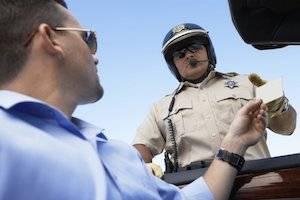
Driver’s license suspension and revocation are typically only used after serious moving violations such as DUI charges, fleeing the scene of an accident that resulted in bodily injury, and various forms of overt reckless driving. If your license has been suspended or revoked, it is possible to receive a restricted driving permit (RDP) so you can go to work and accomplish other normal daily tasks.
To obtain a restricted driving permit, you want to enlist the help of a skilled legal professional who knows how to navigate the process with your best interests in mind.
Restricted Driving Permits in Illinois
Here in the state of Illinois, a restricted driving permit can only be obtained under specific conditions. First, those looking to get an RDP must prove a hardship exists, for instance, if you need a vehicle to get to and from work, or you cannot properly care for your children without driving privileges. Once you have established your need for the permit, you must submit proof of a professionally administered drug and alcohol evaluation, to ensure there is not a serious substance abuse issue that can impact your ability to live up to RDP terms.
School Zone Speeding Tickets in Illinois
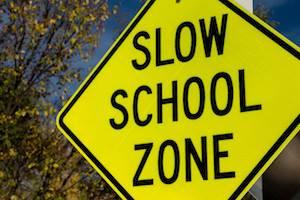 The speed limit in Illinois school zones is 20 mph while children are present, and for good reason. According to the Transportation Research Board, more than 100 children are struck and killed by cars in U.S. school zones each school year. More than 25,000 sustain minor to severe injuries after being hit by a passenger vehicle.
The speed limit in Illinois school zones is 20 mph while children are present, and for good reason. According to the Transportation Research Board, more than 100 children are struck and killed by cars in U.S. school zones each school year. More than 25,000 sustain minor to severe injuries after being hit by a passenger vehicle.
Anyone caught speeding in these zones can face steep penalties, including driver’s license suspension under certain circumstances. Losing your license interrupts daily life and can impact your ability to maintain gainful employment, so driver’s license reinstatement may be essential to keep your normal life structure.
Here’s what you need to know about speeding in a school zone in Illinois:
Limitations to the Law
Reduced speeds for school zones exist while children are present, which is likely to occur during the traditional school hours of 7 a.m. to 4 p.m., except for weekends, holidays, and vacation periods. Illinois law says school zones apply to roads located on school property, and adequately marked public thoroughfares within the school’s proximity. These areas must be clearly marked by signs maintained by the local transportation department, township, county, park district, city, or incorporated town in which the school is located. Unmarked and private roads are not considered part of school zones.
How a Class D Suspended License Affects a CDL in Illinois

For Illinois drivers, a Class D license is for standard motor vehicles, and Class A, B, and C are considered a commercial driver’s license (CDL). While a license suspension can have a significant impact on regular drivers, it can put a CDL holder's livelihood at risk.
For CDL drivers who transport material goods and supplies across the country, a suspension of driving privileges means they cannot perform the duties of their job, and driver’s license reinstatement becomes imperative.
Here are some answers to common CDL-related questions:
Can I Obtain a CLP with a Suspended License?
Illinois state law requires a valid Class D license to obtain a Commercial Learner’s Permit (CLP), which spans 180 days. Your regular license must be valid for that entire duration to earn a CLP. Therefore, if your base license is suspended before course completion, a CLP will not be issued.
Tips for a Successful Driver’s License Reinstatement Hearing

A formal Illinois driver’s license reinstatement hearing is a source of concern for many drivers who wish to regain their driving privileges after a serious offense. The days and weeks leading up to the hearing often reveal many uncertainties, like what to bring, what to wear, and the overall likelihood of success.
Along with experienced legal representation, these tips can help ensure a positive outcome to your hearing:
Bring Necessary Supporting Documents
All documentation must be in the original format for a successful submission. Your hearing risks denial if the necessary forms are either photocopies or unavailable. One requirement is the drug and alcohol evaluation report, because it determines the risk category for which you qualify. The Secretary of State representative will also want to see other information supporting the claim that you will not be a threat to other drivers upon return of your driving privileges. Potential supporting documents include treatment documentation from a licensed facility and character letters.
Illinois Driver’s License Reinstatement Payment Options
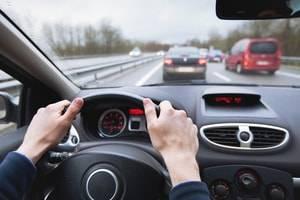
One mistake can seriously impact not only an individual, but also the livelihood of their entire family. Illinois state law allows for driver’s license suspension or revocation for a wide variety of infractions, some of which have nothing to do with actual driving habits. Most people do not realize the importance of a valid driver’s license is until it is gone.
Reinstatement can be costly, which leaves many Illinois residents without driving privileges long after the suspension period ends. Find out how you can get your privileges back via the options below:
Pay the Required Fees
Most residents choose to wait out the required suspension or revocation period patiently. Once the designated term passes, a fee is due, along with other potential requirements. Current possible fees include:
- Discretionary suspension: $70.
Could Traffic Violations Cost Me My Driver’s License?
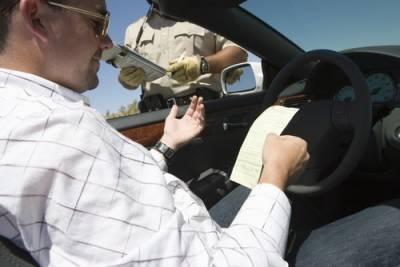 In Illinois, driver’s licenses are issued and managed by the Office of the Secretary of State. The law gives the Secretary’s office to impose suspensions and revocations for offenses such as driving under the influence and refusing a blood-alcohol content (BAC) test incident to a DUI arrest. A suspension may apply in other situations as well, including the use of a fake ID, underage drinking, and failing to pay court-ordered child support. However, even the most seemingly basic traffic violations could result in the suspension of your license, depending on your driving history.
In Illinois, driver’s licenses are issued and managed by the Office of the Secretary of State. The law gives the Secretary’s office to impose suspensions and revocations for offenses such as driving under the influence and refusing a blood-alcohol content (BAC) test incident to a DUI arrest. A suspension may apply in other situations as well, including the use of a fake ID, underage drinking, and failing to pay court-ordered child support. However, even the most seemingly basic traffic violations could result in the suspension of your license, depending on your driving history.
Moving Violations
The Illinois Vehicle Code, along with the Office of the Secretary of State, maintains a list of traffic offenses that are considered “moving violations.” The list includes most of the offenses you would expect, such as:
Alcohol and Drug Evaluations and Risk Assessments
 When you have been convicted on charges of driving under the influence of alcohol or drugs, there are a many considerations that could influence the severity of your sentence and your ability to drive again in the future. In most situations, the penalties for a DUI conviction will include the revocation of your driving privileges for at least one year for first-time offenders, with much longer revocations possible for repeat offenders. Once your driver’s license has been revoked, it is possible to get your license reinstated, but getting back on the road can be long, tough journey with many requirements with which you must comply.
When you have been convicted on charges of driving under the influence of alcohol or drugs, there are a many considerations that could influence the severity of your sentence and your ability to drive again in the future. In most situations, the penalties for a DUI conviction will include the revocation of your driving privileges for at least one year for first-time offenders, with much longer revocations possible for repeat offenders. Once your driver’s license has been revoked, it is possible to get your license reinstated, but getting back on the road can be long, tough journey with many requirements with which you must comply.
DUI Evaluations
Before you can qualify for license reinstatement—or even for a restricted driving permit—you will be required to undergo an alcohol and drug evaluation with an approved, licensed provider. The purpose of the evaluation is to analyze your use or dependence on alcohol or drugs and to establish the risk—if any—you present to public safety. Your evaluation will include:
Formal and Informal Hearings for Driver’s License Reinstatement
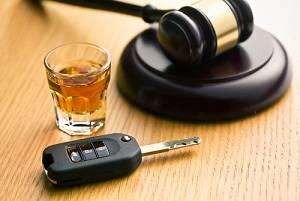 Under Illinois law, driving is not a guaranteed right that all citizens automatically have. It is a privilege that can be suspended or revoked if necessary. There are several different situations that could lead to the loss of your driving privileges in Illinois, including as the result of driving under the influence (DUI). If your license has been revoked or suspended in relation to a failed or refused BAC test or a DUI conviction, you are required to participate in an administrative hearing before your license can be reinstated.
Under Illinois law, driving is not a guaranteed right that all citizens automatically have. It is a privilege that can be suspended or revoked if necessary. There are several different situations that could lead to the loss of your driving privileges in Illinois, including as the result of driving under the influence (DUI). If your license has been revoked or suspended in relation to a failed or refused BAC test or a DUI conviction, you are required to participate in an administrative hearing before your license can be reinstated.
The Illinois Secretary of State’s Office is responsible for virtually all matters related to driver’s licenses in Illinois, including reinstatement hearings. Such hearings may be formal or informal, and the type that you must attend will depend on the circumstances that led to you losing your driving privileges.
The MDDP Program Could Put You Back on the Road During Your License Suspension
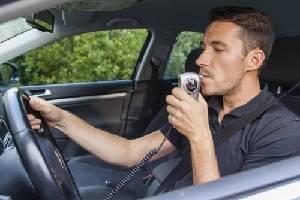 Under Illinois law, there are a number of reasons for which your driver’s license could be suspended or revoked. You could lose your driving privileges for accumulating too many traffic violations, failing to appear in court, failing to pay child support, or using a fake ID. Each year, thousands of Illinois residents also have their licenses suspended or revoked as a result of a DUI conviction. Fortunately, a license suspension related to a DUI offense does not always mean that the driver must stay completely off the road. Thanks to a specific type of driving relief program, first-time DUI offenders are usually able to get back behind the wheel legally while their license is technically suspended.
Under Illinois law, there are a number of reasons for which your driver’s license could be suspended or revoked. You could lose your driving privileges for accumulating too many traffic violations, failing to appear in court, failing to pay child support, or using a fake ID. Each year, thousands of Illinois residents also have their licenses suspended or revoked as a result of a DUI conviction. Fortunately, a license suspension related to a DUI offense does not always mean that the driver must stay completely off the road. Thanks to a specific type of driving relief program, first-time DUI offenders are usually able to get back behind the wheel legally while their license is technically suspended.
Monitoring Device Driving Permit
The state of Illinois recognizes how important the ability to drive is for most individuals. Depending on where a person lives and works, a license suspension could make it nearly impossible for that person to get to and from their job and to provide for themselves and their families. While driving is a privilege and suspension is meant to be a punishment and a deterrent, it does not serve the public well to ruin an offender’s life over a one-time lapse in judgment.







